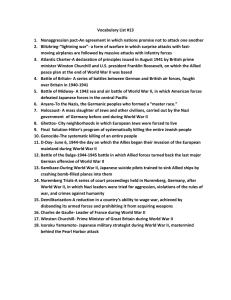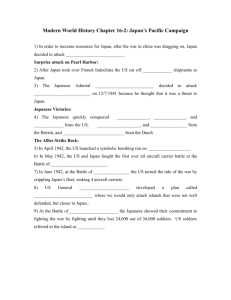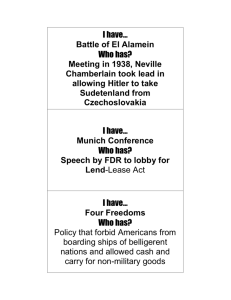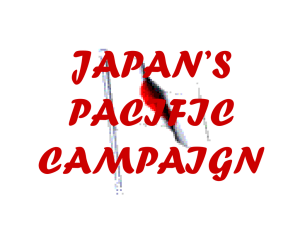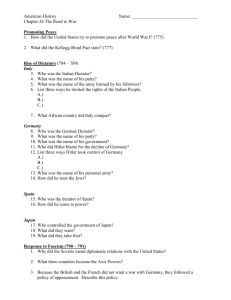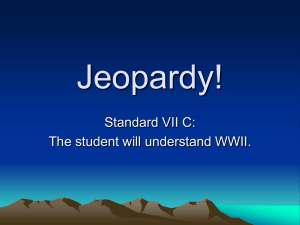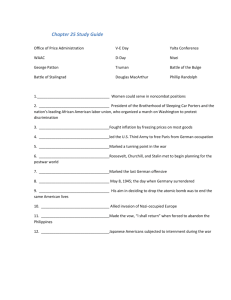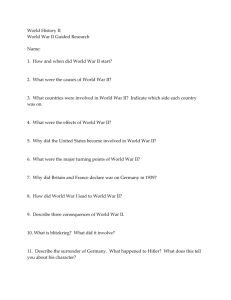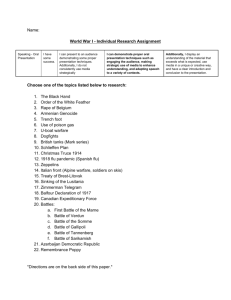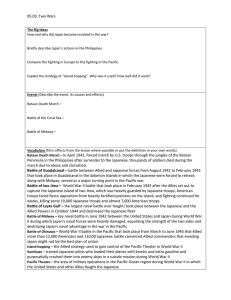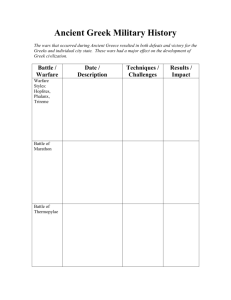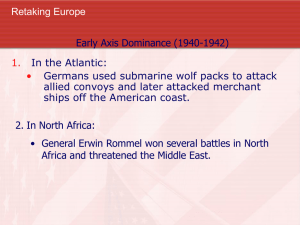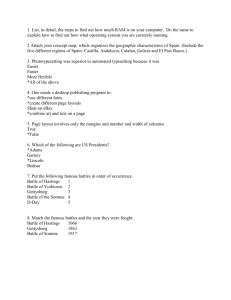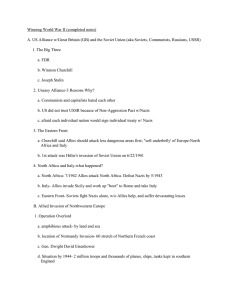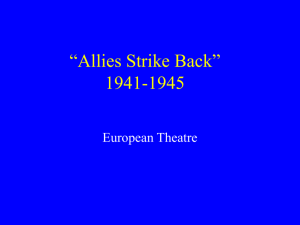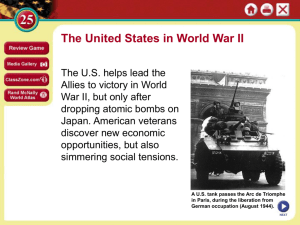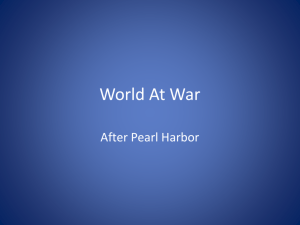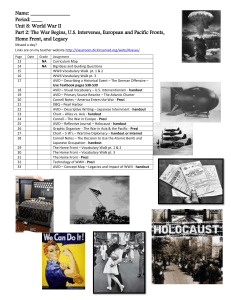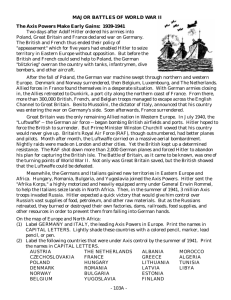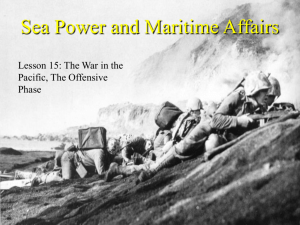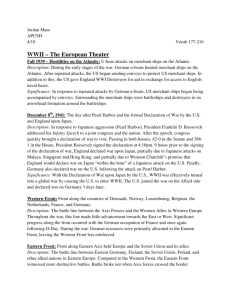Chapter 26 Vocab
advertisement
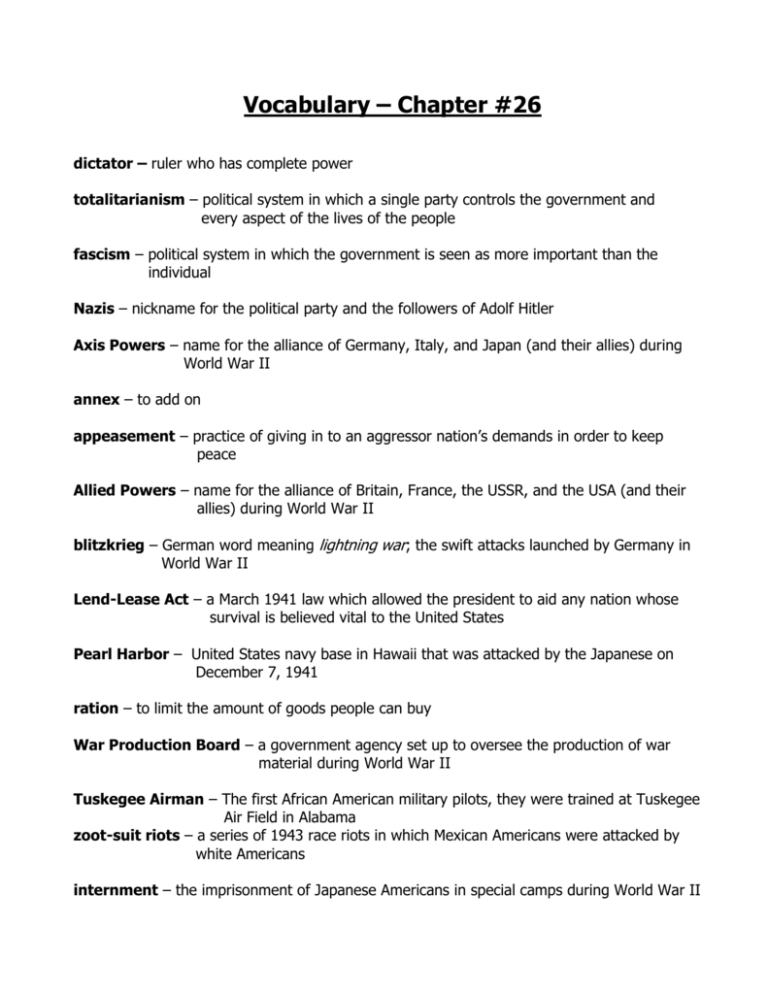
Vocabulary – Chapter #26 dictator – ruler who has complete power totalitarianism – political system in which a single party controls the government and every aspect of the lives of the people fascism – political system in which the government is seen as more important than the individual Nazis – nickname for the political party and the followers of Adolf Hitler Axis Powers – name for the alliance of Germany, Italy, and Japan (and their allies) during World War II annex – to add on appeasement – practice of giving in to an aggressor nation’s demands in order to keep peace Allied Powers – name for the alliance of Britain, France, the USSR, and the USA (and their allies) during World War II blitzkrieg – German word meaning lightning war; the swift attacks launched by Germany in World War II Lend-Lease Act – a March 1941 law which allowed the president to aid any nation whose survival is believed vital to the United States Pearl Harbor – United States navy base in Hawaii that was attacked by the Japanese on December 7, 1941 ration – to limit the amount of goods people can buy War Production Board – a government agency set up to oversee the production of war material during World War II Tuskegee Airman – The first African American military pilots, they were trained at Tuskegee Air Field in Alabama zoot-suit riots – a series of 1943 race riots in which Mexican Americans were attacked by white Americans internment – the imprisonment of Japanese Americans in special camps during World War II Battle of El Alamein – Allied victory in North Africa over German forces known as the Afrika Korps – this battle was a turning point in the war against Germany Battle of Stalingrad – Russian victory over the Nazis, this battle was the second turning point in the war against Germany D-Day – the invasion of Nazi-occupied France at Normandy by Allied forces on June 6, 1944 Battle of the Bulge – the last major German attack of World War II, it was defeated by the Allied forces in December 1944 Bataan Death March –the forced march of American and Filipino prisoners captured by the Japanese on the Bataan Peninsula during which thousands of prisoners were killed Battle of the Coral Sea – May 1942 air naval battle between U.S. and Japanese forces which was militarily a draw, but the Japanese were prevented from capturing their objective, Port Moresby Battle of Midway – battle that ended the Japanese advances in the Pacific, it was the turning point in the war against Japan Battle of Leyte Gulf – the largest naval battle in history, during which the U.S. fleet destroyed most of the Japanese fleet island hopping – strategy of Allies in World War II of capturing some Japanese-held islands and ignoring others kamikaze – in World War II, a Japanese pilot who carried out a suicidal attack on a target home front – during a war, the place, “back home,” where non-fighting people help with the war effort Holocaust – a program of mass murdered carried out by the Nazis in an attempt to killed all Jews and other ‘undesirables’ – at least 12 million were murdered genocide – the complete destruction of a racial or ethnic minority Manhattan Project – the top secret program to build the atomic bomb atomic bomb – powerful nuclear weapon that could destroy an entire city with one bomb
